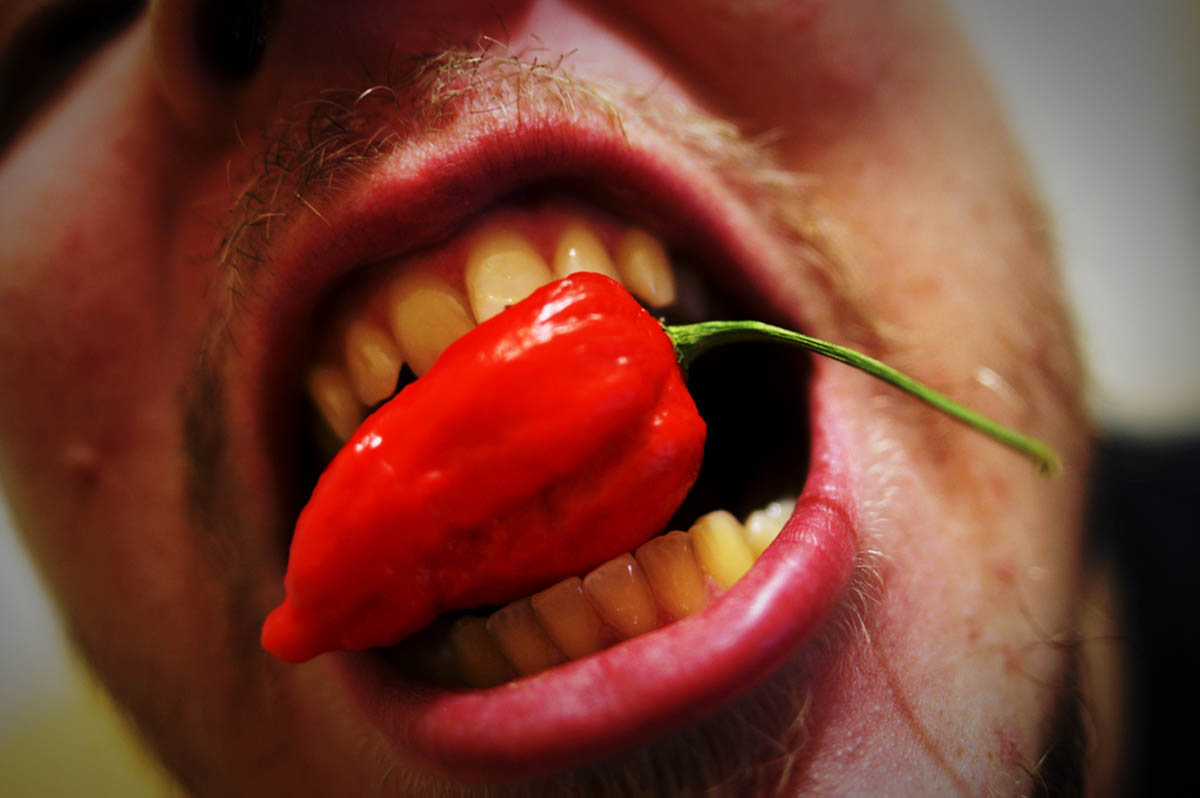Burning mouth syndrome is as unpleasant as it sounds.
Imagine months upon months of daily or recurring burning pain in the mouth, affecting your lips, tongue, gums, the roof of your mouth, the inside of your cheeks, or the area under your tongue — or perhaps all those areas at once. Imagine approaching your dentist or family doctor for help and expecting answers, only to be told no specific test exists for your problem, and no specific treatment works for everyone. Imagine being told your healthcare provider can't even find the cause of the burning pain that's making your life hell. Welcome to burning mouth syndrome.

What Is Burning Mouth Syndrome?
Burning mouth syndrome is a benign but extremely unpleasant condition characterized by burning sensations in parts or all of the mouth. Also called scalded mouth syndrome, burning lips syndrome, burning tongue syndrome stomatodynia and glossodynia, burning mouth syndrome affects about two percent of the population.
Because the symptoms of burning mouth syndrome and the pattern in which symptoms occur vary greatly from patient to patient, burning mouth syndrome arguably isn't a single medical condition at all, but rather a set of symptoms that may or may not have an identifiable cause. Thought to be a form of neuropathic pain, BMS can be diagnosed when no obvious physical symptoms of other medical conditions, such as geographic tongue or lichen planus, are present.
BMS is a rare condition, but women, especially post-menopausal women, and people in their fifties, sixties, and seventies are more commonly affected. Usually striking out of the blue with no clearly identifiable cause, burning mouth syndrome can also, in some cases, be triggered by particular events. These include dental procedures such as getting dentures fitted, upper respiratory tract infections, traumatic events, stress and anxiety, and taking medication. Food allergies may also bring on BMS.
Signs You May Suffer From Burning Mouth Syndrome
For many, the symptoms are relieved somewhat when they eat or drink. The symptoms of burning mouth syndrome may torture the patient on an ongoing basis, but they can also be intermittant, or increase over the course of a day. While burning mouth syndrome can resolve spontaneously after a few months in rare cases, some people suffer from its symptoms for years.
READ Nine Ways Oral Hygiene Helps Keep Your Body and Mouth in Connection
Needless to say, suffering excrutiating pain in such a sensitive area of the body can be life-altering. Burning mouth syndrome can make every-day events like eating, falling asleep, and participating in conversations almost impossible.
Burning Mouth Syndrome: Diagnosis And Treatment Options
How Is Burning Mouth Syndrome Diagnosed?
If you experience the symptoms describe above, it's time to see a doctor. The diagnostic process starts — as is the case for most medical conditions — with a chat about your symptoms, when they occur, and what your medical history is.

Burning mouth syndrome can be said to be either primary or secondary. Figuring out whether you have primary or secondary BMS is a very important part of the diagnostic process:
- Primary burning mouth syndrome doesn't have an identifiable underlying cause, and is thought to be caused by nerve damage in the oral area.
- Secondary BMS, on the other hand, can be caused by a wide variety of medical conditions, ranging from hormonal changes or allergies to dental products to oral infections, acid reflux, Sjögren’s syndrome, radiation therapy, or reactions to certain types of medication.
- Type 1: Patients wake up without symptoms, and then experience symptoms that get progressively worse throughout the day.
- Type 2: Patients experience symptoms during the day time, only to find relief at night.
- Type 3: Patients' symptoms do not follow a predictable pattern, and they will experience days without any symptoms.
Burning Mouth Syndrome: What Treatment Is Available?
As a complex pain disorder, burning mouth syndrome poses special challenges for doctors and patients alike. The cause of your BMS may or may not be identified, but relief is indeed available — though no one treatment works for every single patient with burning mouth syndrome, and some experimentation will almost certainly be required.
If you have secondary burning mouth syndrome, your symptoms will clear up when the underlying condition that led to your pain — like diabetes, for instance — is treated. Those with primary BMS depend on pain relief and medications that serve to increase salivary flow within the mouth.
Your doctor will advise you to:
- Keep very well hydrated. As a dry mouth makes symptoms worse, you may feel relief. Chewing gum or sucking on ice cubes may also help.
- Avoid any substances that can add to the irritation within your mouth. Where applicable, patients should quit smoking, avoid alcohol, cease to use cinnamon, spicy foods, and mint, and acidic substances such as soda, citrus juice, and coffee.
- Use the oral hygiene products recommended by your doctor.
- Try to find relief from stress, including through counseling. Excessive stress can worsen the symptoms of burning mouth syndrome.
READ Oral Hygiene For The Cancer Patient: Looking After Your Mouth Through Chemotherapy
People suffering from BMS have also had luck with gabapentin, an analgesic and anticonvulsant medication. For others, a combination of liquid Maalox and Benadryl greatly reduced symptoms. "Magic mouthwash", a formula used to treat mouth sores and also offered to people suffering oral side effects of chemo therapy, has also helped some patients suffering from burning mouth syndrome. If you are interested in exploring the potential benefits of these medications, please discuss them with your healthcare provider.
- Photo courtesy of wstryder via Flickr: www.flickr.com/photos/wstryder/4053613149
- Photo courtesy of Lindspetrol via Flickr: www.flickr.com/photos/seemsfinehamburg/4013434323


Your thoughts on this